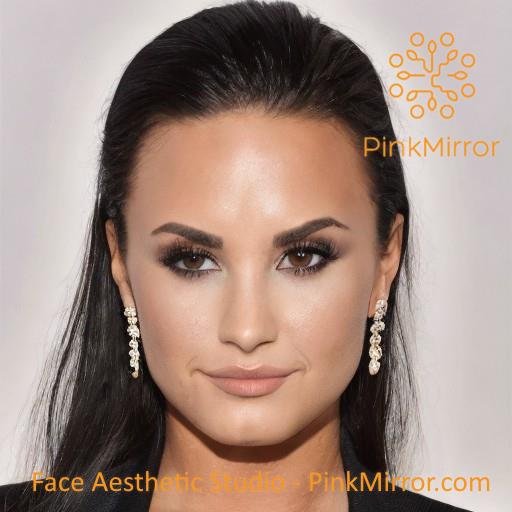Beauty Analysis

Welcome to your personalized facial aesthetic analysis. This comprehensive report provides an in-depth review of your facial features, highlighting both your strengths and areas for potential enhancement. We aim to give you valuable insights based on the latest scientific research and aesthetic standards. Based on the analysis, your face has scored 8.81 out of 10. You are beautiful.
Facial attractiveness is influenced by the proportion of various features and ratios between them. Studies, such as those conducted by the American University of Beirut Medical Center, highlight that while beauty is recognizable, it remains challenging to quantify precisely. This is because overall attractiveness is not determined by single features in isolation but by how these features integrate harmoniously within your face. In this report, we've used the Interpupillary Distance (IPD) as a unit of measurement to provide specific insights.
Assessment Summary
You have 10 standout features and 10 features you can enhance for improved facial attractiveness.
Strengths:
The beauty shines through certain key attributes that boost the facial attractiveness. The strengths:
-
Skin Rhytids
- No Visible Lines -
Eyebrow Grooming
- Sharp -
Nose Tip
- Pointed -
Skin Texture
- Smooth -
Philtrum Length
- Small -
Facial Fat Deposit
- Moderate -
Hair Length
- Shoulder Level -
Hair Volume
- High Volume -
Eyebrow Contrast
- High -
Eye Canthal Tilt
- Upturned
Weakness:
Improving can significantly elevate the overall facial aesthetics:
-
Nose Width
- Average -
Face Shape
- Round -
Facial Fat Deposit
- Moderate -
Hair Curl Pattern
- Straight Hair -
Lip Shape
- Wide Lips -
Skin Oiliness
- Oily -
Eye Length
- Average -
Bi-Zygomatic Width
- Large -
Mouth Length
- Average -
Bi-Gonial Width
- Large
Feature Assessments
Below is the list of facial areas and attributes analyzed by PinkMirror. The assessment covers a total of 51 features across 12 facial areas.
-
Skin Rhytids
No Visible Lines - Top Beauty Asset -
Skin Texture
Smooth - Top Beauty Asset -
Skin Pigmentation
None - Notable Beauty Point -
Skin Oiliness
Oily - Subtle Highlight, but also Subtle Weaknes
-
Eyebrow Grooming
Sharp - Top Beauty Asset -
Eyebrow Contrast
High - Notable Beauty Point -
Eye-To-EyeBrow Margin
Average - Notable Beauty Point -
Eye-To-Brow Outside Margin
Small - Notable Beauty Point -
Eyebrow Shape
High Arch - Subtle Highlight -
Eyebrow Density
Dense - Subtle Highlight -
EyeBrow Length
Average - Subtle Highlight
-
Eyelid Shape
Hooded - Subtle Highlight
-
Eye Canthal Tilt
Upturned - Notable Beauty Point -
Eye Depth
Normal - Notable Beauty Point -
Eye Size
Normal - Notable Beauty Point -
Eye Shape
Almond - Subtle Highlight -
Eye Length
Average - Subtle Highlight, but also Subtle Weaknes -
Eye Width to Height Ratio
Average - Subtle Highlight, but also Subtle Weaknes
-
Nose Tip
Pointed - Top Beauty Asset -
Philtrum Length
Small - Top Beauty Asset -
Nose Width
Average - Notable Beauty Point, but also Top Weaknes -
Nose Length
Average - Notable Beauty Point -
Nose Length to Philtrum Length Ratio
Large - Notable Beauty Point -
Nose Angle
Sharp - Subtle Highlight
-
Eye Mouth Eye Angle
Moderate - Notable Beauty Point -
Bi-Zygomatic Width
Large - Subtle Highlight, but also Subtle Weaknes
-
Lip Shape
Wide Lips - Notable Beauty Point, but also Subtle Weaknes -
Lower-Lip Height
Average - Notable Beauty Point -
Upper-Lip Height
Average - Subtle Highlight -
Upper Lip to Lower Lip Ratio
Average - Subtle Highlight, but also Subtle Weaknes
-
Mouth Length
Average - Subtle Weaknes
-
Jaw Angle
Very Wide - Subtle Weaknes -
Bi-Gonial Width
Large - Subtle Highlight, but also Subtle Weaknes
-
Chin Length
Average - Notable Beauty Point, but also Subtle Weaknes -
Chin Angle
Wide - Subtle Highlight, but also Subtle Weaknes
-
Facial Fat Deposit
Moderate - Notable Beauty Point, but also Subtle Weaknes -
Mid Face Height
Average - Notable Beauty Point -
Bi-Zygomatic to Mid Face Height Ratio
Average - Notable Beauty Point -
Bi-Zygomatic to Face Height Ratio
Large - Notable Beauty Point -
Subnasale Stomion to Stomion Chin Ratio
Average - Notable Beauty Point -
Mouth Width to Nose Width Ratio
Large - Notable Beauty Point -
Bi-Goinal to Bi-Zygomatic Ratio
Average - Notable Beauty Point -
Face Height middle-third to lower-third Ratio
Average - Notable Beauty Point -
Face Shape
Round - Subtle Highlight, but also Subtle Weaknes -
Bi-Temporal Width
Large - Subtle Highlight -
Bi-Temporal to Bi-Zygomatic Ratio
Average - Subtle Highlight, but also Subtle Weaknes -
Philtrum to Mouth Length Ratio
Small - Subtle Highlight, but also Subtle Weaknes -
Chin Length to Philtrum Length Ratio
Large - Subtle Highlight, but also Subtle Weaknes
-
Hair Curl Pattern
Straight Hair - Subtle Weaknes -
Hair Length
Shoulder Level - Notable Beauty Point -
Hair Volume
High Volume - Notable Beauty Point
Personalised Plans
Assess your Facial Aesthetics and Get your personalised Improvement Plans.
In an era where personalization is not just valued but expected, we are thrilled to introduce our service that caters to the individual's quest for their best self. Our cutting-edge AI-driven analysis goes beyond the surface, offering a comprehensive understanding of your unique facial features and skin health. It's not just about enhancing beauty; it's about embracing a personalized approach to celebrate and elevate your natural features.
Tailored Skincare Routines: Products chosen based on your skin's specific needs, targeting areas that will benefit most from intervention.
Customized Nutrition Advice: Dietary recommendations to enhance your skin's natural glow from the inside out.
Lifestyle Modifications: Suggestions for small but impactful lifestyle changes that can improve skin health and overall wellness.
Aesthetic Enhancements: Non - invasive options and cosmetic guidance to accentuate your features while maintaining a natural look.
Interesting Facts
Do you know Alexandra Daddario is considered beautiful than Demi Lovato ?


